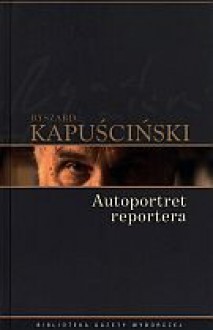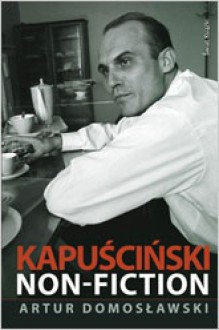
Ryszard Kapuściński was a man of many talents. With respect to his book, "IMPERIUM", I will be focusing on his skills as a travel writer and journalist.
In "IMPERIUM", Kapuściński shares with the reader his perspectives of his lifelong experiences with the Soviet Union (which was the very embodiment of "Imperium"), its culture, and people. This began for Kapuściński, as a 7-year old boy, in his hometown of Pińsk in Eastern Poland in the latter part of 1939, following the Soviet occupation of the eastern half of the country as a result of the Molotov-Ribbentrop non-aggression pact signed by Nazi Germany and the Soviet Union in August of that year. The Soviets did not waste any time in imposing the Russian language and culture upon the Poles through intimidation, terror, deportation, and murder. Kapuściński writes of this experience with a clear-eyed, penetrating poignancy.
Then fast forward 20 years and Kapuściński makes his first visit to the Soviet Union. Though it is then the early post-Stalin era, he shares with the reader the excessive reserve and guardedness of people he encountered wherever he travelled. Foreigners for the average Soviet citizen were viewed with dread, suspicion, and fear. It was deemed wise to avoid them, or should that not prove possible, say little to them.
Kapuściński would return to the Soviet Union in 1967 and again, in the late 1980s and early 1990s as the country became rife with dissent in various regions (who remembers the fight over Nagorno-Karabakh between the Soviet republics of Armenia and Azerbaijan?), caught up in an abortive coup by Soviet hardliners in August 1991, and was formally dissolved 4 months later (Christmas Day) by the Soviet Union's last General Secretary, Mikhail Gorbachev.
Through his travels, Kapuściński shares with the reader his encounters with various people from all walks of life that add lots of spiciness and raw reality to his narrative. For example, Genady Nikolayevich, a 50 year old recently retired coal miner (Kapuściński met him in the late 1980s) who spent most of his life in Vorkuta, a city in Northern Russia around the Arctic Circle which was founded as a work camp (gulag) under Stalin. Subsequently, as the gulags lost their importance following Stalin's death, Vorkuta became a full-fledged mining town. A magnet for anyone in search of a job who was willing to accept the work hazards and the vagaries of the weather.
For anyone anxious to learn something about what the Soviet Union was like on a personal level from Stalin to Gorbachev, as well as varied views on what developed in the Soviet Union between 1985 and its dissolution in 1991, read "IMPERIUM." For me, the book tended to reinforce my views of the Soviet Union/Russia as a rather cold and at times forbidding country. (Aside from St. Petersburg and Odessa, I have no desire - as a tourist - to explore the country further.)

 Log in with Facebook
Log in with Facebook 

 The best part of this book is where us readers get a glimpse at the times when Kapuściński is setting out on his fledgling career
The best part of this book is where us readers get a glimpse at the times when Kapuściński is setting out on his fledgling career  Herodotus’s opus appeared in the bookstores in 1955. Two years had passed since Stalin’s death. The atmosphere became more relaxed, people breathed more freely. Ilya Ehrenburg’s novel 'The Thaw' had just appeared, its title lending itself to the new epoch just beginning. Literature seemed to be everything then. People looked to it for the strength to live, for guidance, for revelation.
Herodotus’s opus appeared in the bookstores in 1955. Two years had passed since Stalin’s death. The atmosphere became more relaxed, people breathed more freely. Ilya Ehrenburg’s novel 'The Thaw' had just appeared, its title lending itself to the new epoch just beginning. Literature seemed to be everything then. People looked to it for the strength to live, for guidance, for revelation. Here he is, in his yellow shirt!
Here he is, in his yellow shirt!
 At Sealdah train station, Culcutta, Kapuściński encounters poverty and distress that beggars belief:
At Sealdah train station, Culcutta, Kapuściński encounters poverty and distress that beggars belief:
 Hyderabad
Hyderabad







